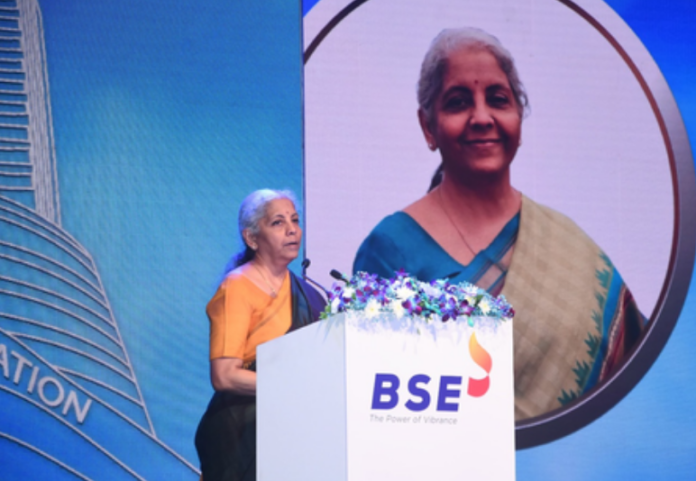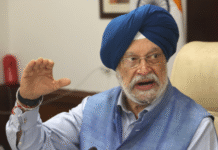Mumbai— Finance Minister Nirmala Sitharaman on Thursday reaffirmed India’s readiness to confront global trade disruptions through a strategic mix of policy agility and long-term investments aimed at reinforcing the domestic economy.
Speaking at the 150th anniversary celebration of the Bombay Stock Exchange (BSE), Sitharaman acknowledged that escalating tariff wars and rising protectionism have the potential to disrupt global supply chains, raise production costs, and inject uncertainty into cross-border investments.
“In a world that is volatile, uncertain, complex, and ambiguous, India’s strong economic fundamentals and sound macroeconomic management stand out,” she said. “We offer investors a unique blend of policy stability, robust growth, good governance, and innovation.”
She emphasized that India will continue to respond to global shocks with a forward-looking approach. “We will navigate these global disruptions with policy agility and sustained long-term investments,” Sitharaman noted.
The Finance Minister also praised the resilience of India’s financial markets despite recent global volatility. She credited retail and domestic institutional investors for their growing participation and trust in the markets. “The transition of domestic institutional investors from a supporting role to a dominant force reflects the growing maturity and depth of our capital markets,” she said.
Following global capital market turbulence triggered by tariff hikes from the U.S., Indian stock markets have remained relatively stable—bolstered by a 90-day pause in tariff increases for India announced by President Donald Trump during ongoing bilateral trade talks.
India and the U.S. are currently working to finalize the first tranche of a Bilateral Trade Agreement (BTA), with the aim of reducing tariffs ahead of the fall 2025 deadline. Commerce Secretary Sunil Barthwal recently confirmed that the terms of reference for the pact have been finalized, and both countries are open to completing the agreement sooner.
“India has chosen the path of trade liberalization with the U.S.,” Barthwal stated. “If we can conclude the BTA before fall, it will benefit both sides.”
A reduction in tariffs would likely boost trade volumes between the two nations. During Prime Minister Narendra Modi’s visit to Washington, he and President Trump set an ambitious goal of reaching $500 billion in bilateral trade by 2030. (Source: IANS)








